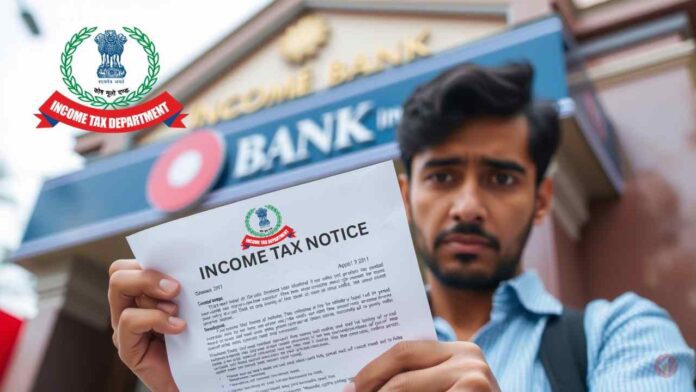The Income Tax Department not only keeps track of your income but also your transactions. As soon as Delhi resident Kumar deposited Rs 8 lakh in his bank account, he received an income tax notice within a few days.
The department directly linked the amount to his business income and demanded tax from him under Section 44AD of the Income Tax Act. Kumar appealed this action to the Income Tax Commissioner, but lost. He then appealed to the Income Tax Appellate Tribunal, Delhi, where he finally prevailed. The entire matter took six years.
Kumar’s main challenge in the case was the decision of the lower tax authority, which classified the amount of Rs 868,799 deposited by Kumar in his account as deemed profit from his business and issued a tax notice against it. Kumar argued that the investigation was very limited and the tax department had issued its notice only based on his cash deposits. The case, which began in 2019, was won by Kumar in the Appellate Tribunal on September 22, 2025.
What was the whole matter?
The Income Tax Department’s investigation, as defined in its notice under Section 143(2), was limited to examining the cash deposits in bank accounts. The Assessing Officer later conducted a limited investigation, in which the entire amount was added to Kumar’s business profits on the basis of estimates. Kumar replied that the Assessing Officer was only authorised to examine the source of these funds. Prior permission from the CIT was required to assess tax on these funds, which was a requirement of the CBDT. The CBDT has issued a formal instruction in this regard.
How he won the income tax case…
Kumar won his case in the Delhi Appellate Tribunal, where the court held that both the Assessing Officer and the Appellate Commissioner had exceeded their jurisdiction in demanding tax. In its judgment, the Appellate Tribunal relied on a Calcutta High Court judgment limiting the scope of the investigation by the authorities. The ITAT also found that the authorities had not shown any reason for exceeding their jurisdiction. Therefore, the Tribunal declared the entire investigation invalid.
Did Kumar have to pay tax or not?
Now that the tribunal has declared all the Income Tax Department’s investigations and tax assessments against Kumar invalid, the question arises whether Kumar had to pay tax. According to the ITAT’s decision, all the allegations and investigations made by the Income Tax Department against Kumar were baseless. The authorities had conducted all the investigations outside their jurisdiction, and therefore, Kumar has no tax liability in this case, nor has he been punished under the Income Tax Act.




